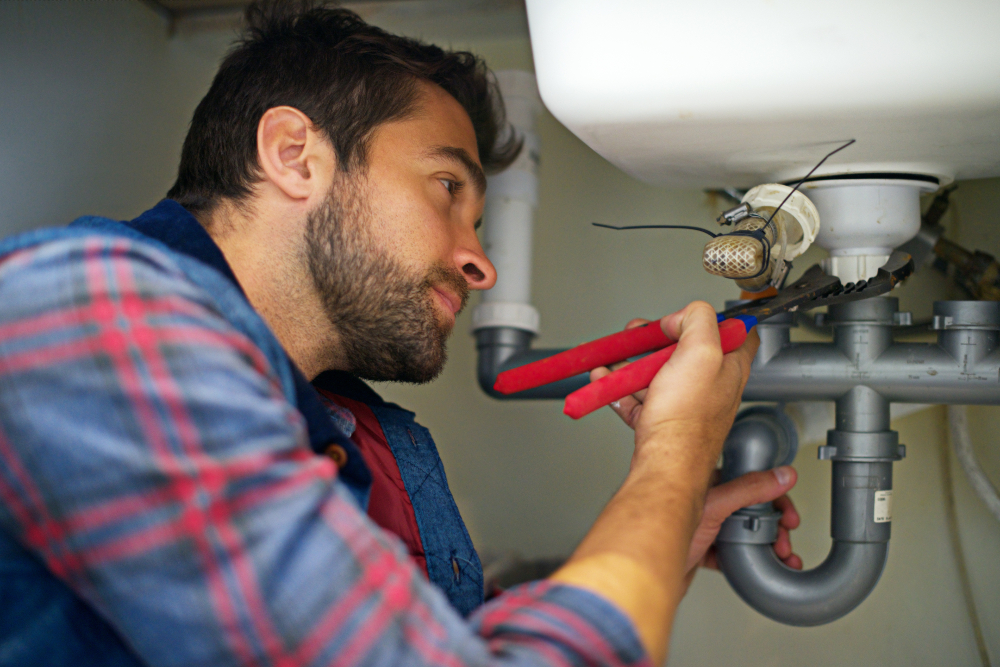Creative Approaches for Compact Space Plumbing Systems
Living in a tight space often means getting creative with every part of life, which includes waterworks. If you’re facing with a small flat or a small home, water issues can occur just like in larger homes. Nonetheless, with the right information and resources, even the most frequent plumbing issues can be tackled effectively. From knowing how to turn off your supply in an emergency to knowing when it is time to call a plumber, this guide will lead you through useful and clever solutions to keep your small space functioning smoothly.
In the realm of waterworks, problems like blocked drains or reduced water pressure can be especially annoying in tight quarters. Residents often wonder about the best ways to care for their plumbing systems while maximizing their small space. We’ll cover preventative steps, care tips, and even seasonal lists to ensure that your water system remains in excellent condition throughout the year. By learning about the specifics of small space waterworks, you will not only be ready for emergencies but also be able to make informed choices about potential improvements and remodeling.
Frequent Plumbing Issues & Solutions
One of the most common plumbing problems homeowners encounter is a clogged drain. This issue can arise from multiple factors such as fat growth, fur accumulation, or foreign objects. To tackle this, it’s essential to consistently use a drain cover to catch debris and periodically flush drains with warm water or a mixture of soda bicarbonate and vinegar to prevent buildup. If the clog persists, a plumbing snake or plunger can offer a DIY solution before considering professional assistance.
Another common issue is low water pressure, which can affect daily routines like showering and washing dishes. The causes of low water pressure can vary from a secret leak in the plumbing system to sediment buildup in your faucets and devices. https://telegra.ph/Finding-a-Plumber-in-a-Tight-Spot-Tips-for-Rapid-Support-04-24 can check for signs of leaks to tackle any underlying issues and clean aerators and showerheads to restore optimal flow. If the problem continues, consulting a plumber might be necessary to inspect the main supply line.
Finally, homeowners often experience issues pertaining to water heater maintenance. A lack of hot water or strange noises coming from the unit can indicate that it requires attention. Routine maintenance such as flushing the tank yearly can help prevent sediment buildup and prolong the life of the water heater. Additionally, checking the pressure relief valve and ensuring proper insulation around pipes can greatly enhance efficiency. Understanding these frequent plumbing challenges enables homeowners to take proactive measures, ensuring a more reliable plumbing system.
Maintenance Advice for Homeowners
Routine maintenance is essential to stopping common plumbing issues in your home. Begin by inspecting your water heater each six months, checking for leaks or corrosion. Ensure to flush it yearly to remove sediment buildup, which can influence efficiency. In addition, check the pressure relief valve to make sure it is working correctly. Maintaining your water heater not only extends its lifespan while also helps prevent costly repairs in the future.
Another important aspect of plumbing maintenance is your drainage system. To prevent clogged drains before they start, be mindful of what goes down the sink. Avoid throwing away grease or fibrous materials that can create blockages. Consider using a hair catcher in your shower and maintaining gutters and outside drains often. Tackling these small issues promptly can keep you from emergency plumbing situations later on.
Lastly, seasonal checks can protect your plumbing during extreme weather conditions. In winter, take measures to stop your pipes from freezing by covering them and letting faucets drip during cold spells. In spring, conduct a thoroughgoing inspection for any signs of leaks. Keeping an eye on your plumbing throughout the year not only saves money but makes sure a smoothly running home environment.
Crisis Readiness and Pipe Improvements
Being ready for plumbing emergencies can help homeowners not only hours but also substantial expenses. A key action is to know how to shut off your water in an urgent situation. Familiarizing yourself with the placement of your main water cut-off valve can help you quickly address leaks or broken pipes, minimizing fluid damage. Additionally, think about creating an emergency plumbing set that includes necessary tools and supplies like tape, a spanner, and a flashlight, which makes it easier to handle small issues while you are waiting for a professional.

Upgrading your plumbing system can also boost your home's strength against crises. For example, installing new fixtures and pipe materials, such as PEX instead of traditional copper, can provide more flexibility and resistance to breaking in freezing weather. Tankless water heaters are another upgrade worth looking into, as they offer not only space savings but also power efficiency, making sure that hot water is always available without the threat of drips related with standard tanks.
Lastly, periodic maintenance plays a crucial part in averting plumbing problems. Before winter arrives, it’s crucial to protect your pipes from freezing by insulating them and ensuring that your home is equipped to handle low temperatures. In plumber new ross , conduct a thorough inspection as part of your seasonal plumbing review for every homeowner, checking for hidden leaks and clogs that could result in significant problems. By prioritizing both preparedness and regular upgrades, homeowners can protect their plumbing systems against unexpected disasters.